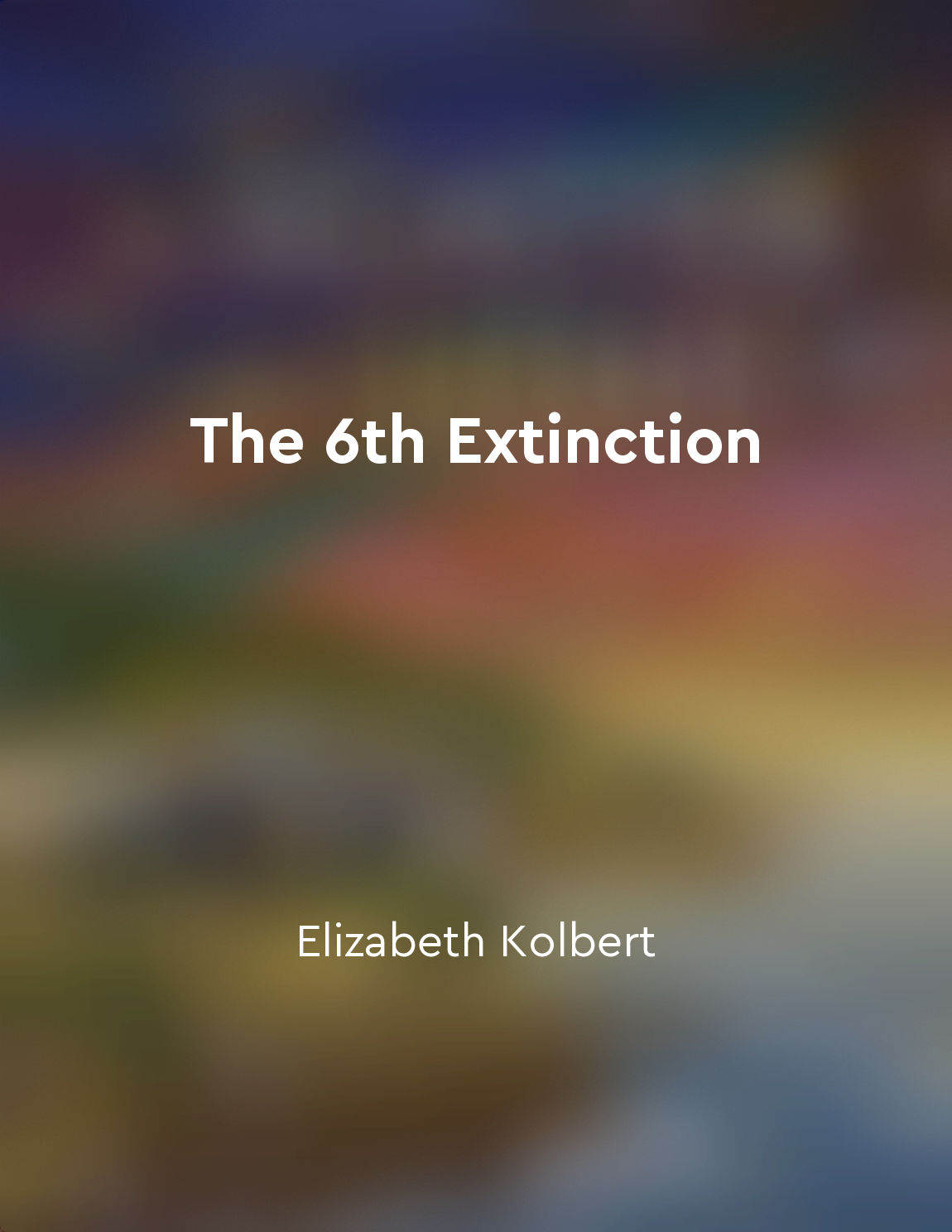Audio available in app
The extinction rate is currently 1,000 times higher than normal from "summary" of The Sixth Extinction (10th Anniversary Edition) by Elizabeth Kolbert
In the history of life on Earth, there have been five mass extinctions, each caused by a catastrophic event that led to a significant loss of species. Today, scientists warn that we are in the midst of a sixth mass extinction, one that is not caused by a single catastrophic event, but rather by human activities that are driving numerous species to extinction at an alarming rate. The current extinction rate is estimated to be 1,000 times higher than normal, with species disappearing at a rate that far exceeds the background rate of extinction seen in the fossil record. This rapid loss of biodiversity is a direct result of human activities such as habitat destruction, pollution, climate change, and the introduction of invasive species. ...Similar Posts

Hold corporations accountable for emissions
Corporations play a significant role in the emission of greenhouse gases that are driving climate change. These emissions are n...
Political polarization and social unrest
Political polarization and social unrest go hand in hand, creating a volatile environment in society. As people become more div...

Loss of keystone species can have cascading effects on other species
The disappearance of a keystone species can set off a chain reaction, impacting the entire ecosystem. This is because keystone ...
Investing in green infrastructure is essential for a sustainable future
Investing in green infrastructure is crucial for securing a sustainable future. Green infrastructure refers to natural systems ...

Coral reefs are particularly vulnerable to environmental changes
Coral reefs, with their intricate structures and vibrant ecosystems, are often described as the "rainforests of the sea". Howev...

The extinction of one species can lead to the extinction of others
Elizabeth Kolbert's 'The 6th Extinction' delves into the interconnectedness of species within ecosystems and the potential cons...

The future of biodiversity depends on the choices we make today
In the face of the ongoing crisis of biodiversity loss, it is crucial to recognize the impact of our present actions on the fut...
Bringing nature home is essential for a sustainable and healthy future
Our future depends on the health of the natural world around us. The plants and animals that make up our ecosystems are not jus...
The urgency of the climate crisis requires immediate and bold action
The threat posed by climate change is not a distant concern but a pressing reality that demands urgent attention. The consequen...
Conservation efforts are crucial for preserving Earth's biodiversity
Preserving Earth's biodiversity is a pressing concern for humanity. The intricate web of life on our planet is a product of bil...
